Filter by
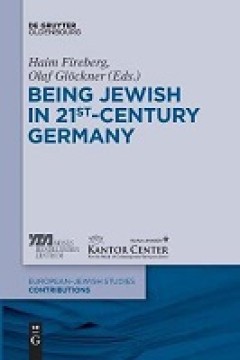
Being Jewish in 21st-Century Germany
An unexpected immigration wave of Jews from the former Soviet Union mostly in the 1990s has stabilized and enlarged Jewish life in Germany. Jewish kindergartens and schools were opened, and Jewish museums, theaters, and festivals are attracting a wide audience. No doubt: Jews will continue to live in Germany. At the same time, Jewish life has undergone an impressing transformation in the second…
- Edition
- -
- ISBN/ISSN
- 9783110395747
- Collation
- -
- Series Title
- -
- Call Number
- -

Hermann Hesse and His Critics: The Criticism and Bibliography of Half a Century
Originally published in celebration of Hermann Hesse's 80th birthday, this highly documented study, practical handbook, and reference work for Hesse scholarship is presented in three parts. Mileck gives a short biography of Hesse's life and a general characterization of his writing, followed by a critical history of Hesse scholarship through 1957 organized chronologically, categorically and the…
- Edition
- -
- ISBN/ISSN
- 9781469657998
- Collation
- -
- Series Title
- -
- Call Number
- -
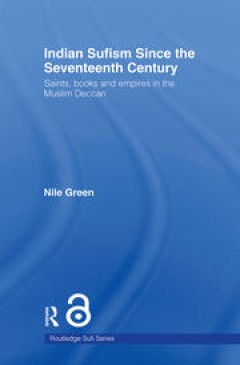
Indian Sufism since the Seventeenth Century
ABSTRACT Sufism is often regarded as standing mystically aloof from its wider cultural settings. By turning this perspective on its head, Indian Sufism since the Seventeenth Century reveals the politics and poetry of Indian Sufism through the study of Islamic sainthood in the midst of a cosmopolitan Indian society comprising migrants, soldiers, litterateurs and princes. Placing the mystical…
- Edition
- -
- ISBN/ISSN
- 9780203965368
- Collation
- -
- Series Title
- -
- Call Number
- -

Generational Tensions and Solidarity Within Advanced Welfare States
ABSTRACT This book explores generation as both a reference to family or kinship structures, and a reference to cohorts or age sets. The principal objective is branching out this two-part concept through studies of tensions and solidarity within and between generations of advanced and robust welfare states. Answering key questions using multiple disciplinary approaches, the book considers ho…
- Edition
- -
- ISBN/ISSN
- 9781003129592
- Collation
- -
- Series Title
- -
- Call Number
- -
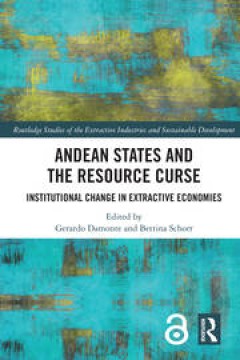
Andean States and the Resource Curse
ABSTRACT This volume explores institutional change and performance in the resource-rich Andean countries during the last resource boom and in the early post-boom years. The latest global commodity boom has profoundly marked the face of the resource-rich Andean region, significantly contributing to economic growth and notable reductions of poverty and income inequality. The boom also constit…
- Edition
- -
- ISBN/ISSN
- 9781003179559
- Collation
- -
- Series Title
- -
- Call Number
- -

Political and Military Sociology
ABSTRACT This special edition of Political and Military Sociology: An Annual Review encompasses a full range of coverage on the European refugee crisis. Contributions include a focus on the characteristics and motivations of modern-day migrants, an analysis of the inconsistent standards displayed by the European Union, and the militarization happening across parts of Europe in response. The…
- Edition
- -
- ISBN/ISSN
- 9780429463105
- Collation
- -
- Series Title
- -
- Call Number
- -
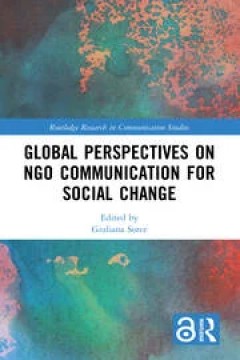
Global Perspectives on NGO Communication for Social Change
ABSTRACT This book examines the central role media and communication play in the activities of Non-Governmental Organizations (NGOs) around the globe, how NGOs communicate with key publics, engage stakeholders, target political actors, enable input from civil society, and create participatory opportunities. An international line-up of authors first discuss communication practices, strategie…
- Edition
- -
- ISBN/ISSN
- 9781003188636
- Collation
- -
- Series Title
- -
- Call Number
- -
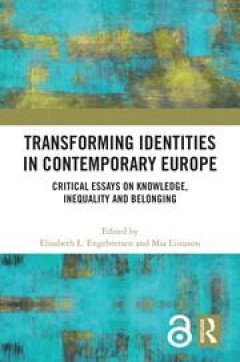
Transforming Identities in Contemporary Europe
ABSTRACT Interdisciplinary in perspective, this book explores contemporary struggles around ‘identity politics’ in Europe, offering a unique glimpse into contemporary tensions and paradoxes surrounding identities, belonging, exclusions and their deep-seated gendered, colonial and racist legacies. With a particular focus on the Nordic region, it provides insights into the ways in which peop…
- Edition
- -
- ISBN/ISSN
- 9781003245155
- Collation
- -
- Series Title
- -
- Call Number
- -

Theorizing Cultures of Political Violence in Times of Austerity
ABSTRACT After the multidimensional financial crisis of 2008, the member states of the Eurozone imposed a set of economic policies to save their economies. Socially unpopular cuts contributed to the occurrence of violent movements that both opposed austerity policies and created animosity towards the politicians who implemented them. Combining qualitative and quantitative comparative analys…
- Edition
- -
- ISBN/ISSN
- 9781351205757
- Collation
- -
- Series Title
- -
- Call Number
- -
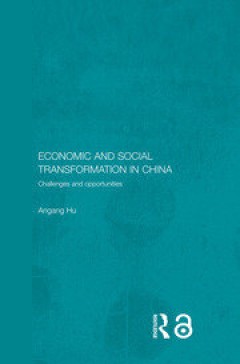
Economic and Social Transformation in China
ABSTRACT The Center for China Studies is among China’s most influential think-tanks, and its China Studies Reports are read at the highest levels of government. Now for the first time, the most important of these reports is collected in book form in English, providing a fascinating insight into the challenges and opportunities for Chinese development and the government’s thinking on econom…
- Edition
- -
- ISBN/ISSN
- 9780203970096
- Collation
- -
- Series Title
- -
- Call Number
- -
 Computer Science, Information & General Works
Computer Science, Information & General Works  Philosophy & Psychology
Philosophy & Psychology  Religion
Religion  Social Sciences
Social Sciences  Language
Language  Pure Science
Pure Science  Applied Sciences
Applied Sciences  Art & Recreation
Art & Recreation  Literature
Literature  History & Geography
History & Geography